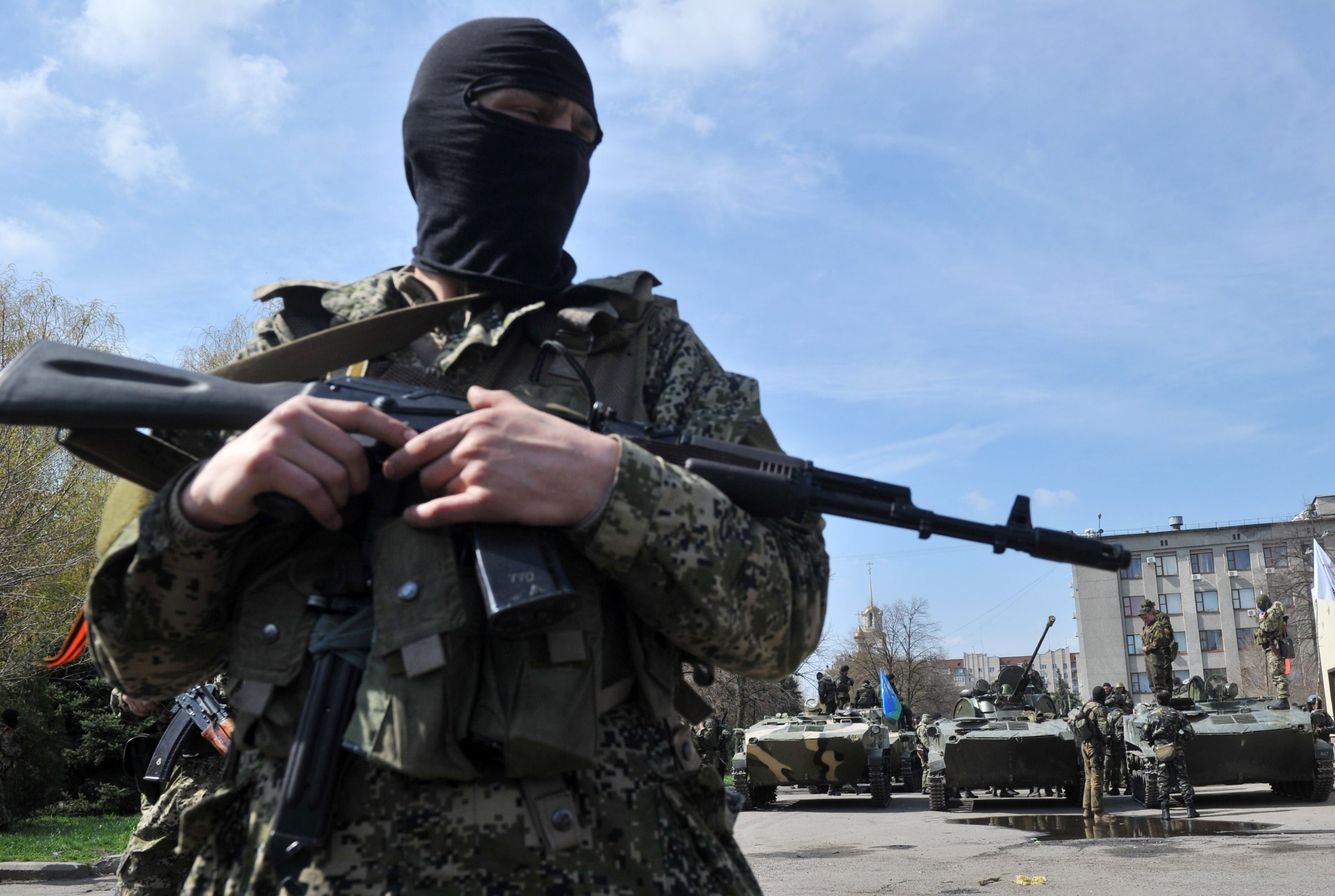
Back in 1993, during the earliest days of the Clinton Administration, Senator Richard Lugar of the Senate Foreign Relations Committee warned that with the Soviet Union history, NATO needed to “go out of area, or out of business.”
Like any self-respecting, self-perpetuating armed bureaucracy, the alliance got the hint, deploying forces—and, in some cases, fighting—in Bosnia, Kosovo, Afghanistan, Iraq, the Gulf of Aden and Libya.
President Clinton may have moved from the world stage, and Senator Lugar may have lost the 2012 Indiana Republican primary to an ultimately-defeated Tea Party candidate, but NATO—thanks to Russia’s threat to Ukraine—is now firmly back in business, finally in its own area.
The North Atlantic alliance made clear Wednesday that “a political solution is the only way forward” in dealing with Russia’s threats to its former fellow Soviet republic. That may be the only way forward for NATO and the West. But Russia may not be willing to play fair.
“We call on Russia to be part of the solution,” NATO Secretary General Anders Fogh Rasmussen said. “To stop destabilizing Ukraine, pull back its troops from the borders and make clear it doesn’t support the violent actions of well-armed militias of pro-Russian separatists.”
Good luck with that, Secretary General.
When NATO faced a similar situation in the Balkans in the 1990s, importuning for political solutions failed and ended with thousands of bombing runs against Serbian targets. The Serbs are Slavs, as are the Russians. So are the Ukrainians. Ethnicity isn’t destiny, but it plays a role.
NATO hopes that Thursday’s meeting in Geneva among representatives from Ukraine, Russia, the U.S. and the European Union will ease tensions. “We continue to call on Russia to take action that de-escalates the situation and the tensions in Ukraine by returning its forces to their pre-crisis positions and numbers; moving its forces from the Ukrainian border as well from Crimea; ceasing its support for armed separatist groups that have seized government buildings, blockaded roads and stockpiled weapons in eastern Ukraine; and engage directly in a dialogue with Ukraine about its concerns when it comes to ethnic Russians in parts of Ukraine,” White House press secretary Jay Carney said Wednesday.
U.S. aid to Ukraine so far has consisted of 300,000 Meals-Ready-to-Eat for famished fighters in the field. On Wednesday, the New York Times reported that Wesley Clark, the retired Army general who served as NATO’s commander during the 1998-99 Kosovo war, is urging deliveries of nonlethal aid, including body armor, night-vision goggles and aviation fuel to help Ukraine thwart any Russian invasion. The list only serves to highlight how little the West is willing to do to help Ukraine. No one believes it will make much difference if Russian tanks cross the border.
“We’re actively considering forms of assistance, the kinds of assistance that we may be able to provide to Ukraine,” Carney said. “We are not considering lethal assistance, but I’m not going to itemize the types of assistance that are under consideration.”
Rasmussen made it clear that NATO is making military moves—but only to calm its jittery new members who fear Moscow. “We will have more planes in the air, more ships on the water and more readiness on the land,” he said. “Air policing aircraft will fly more sorties over the Baltic region. Allied ships will deploy to the Baltic Sea, the eastern Mediterranean and elsewhere, as required.”
But their mission is limited to defending NATO’s 28 member states. There is no appetite in the West for military action to preserve Ukraine’s sovereignty, despite a 1994 pact among Russia, Britain and the U.S. pledging to honor its borders.
So it looks like the Cold War has returned: the Soviet Union crushed uprisings in Hungary in 1956 and Czechoslovakia in 1968, while NATO observed from the sidelines. Russia did it in Georgia in 2008, and Crimea last month. It could happen in Ukraine momentarily. Once again, NATO will be watching.
More Must-Reads from TIME
- Why Trump’s Message Worked on Latino Men
- What Trump’s Win Could Mean for Housing
- The 100 Must-Read Books of 2024
- Sleep Doctors Share the 1 Tip That’s Changed Their Lives
- Column: Let’s Bring Back Romance
- What It’s Like to Have Long COVID As a Kid
- FX’s Say Nothing Is the Must-Watch Political Thriller of 2024
- Merle Bombardieri Is Helping People Make the Baby Decision
Contact us at letters@time.com